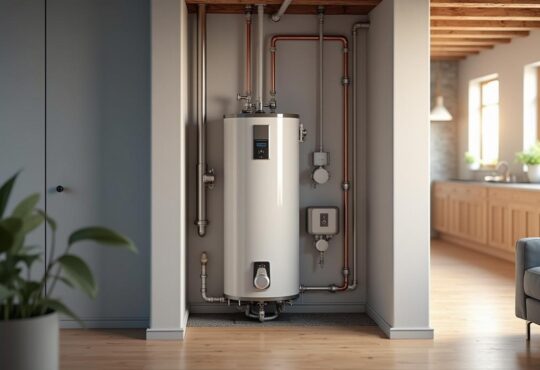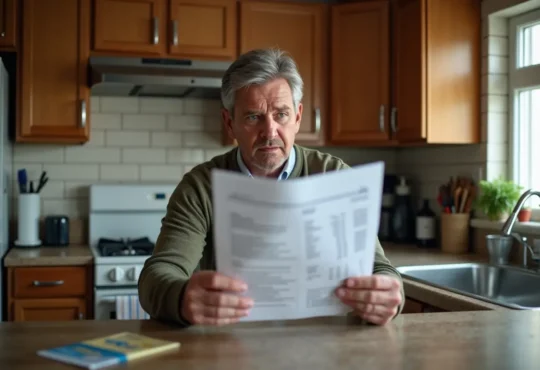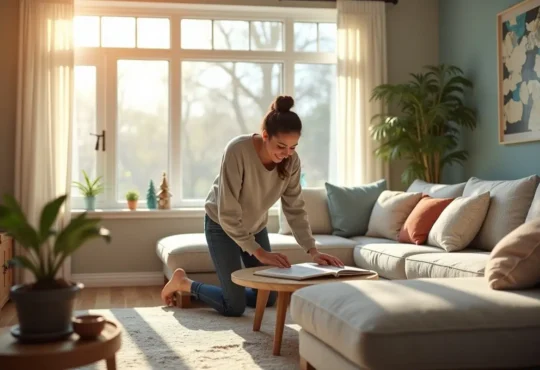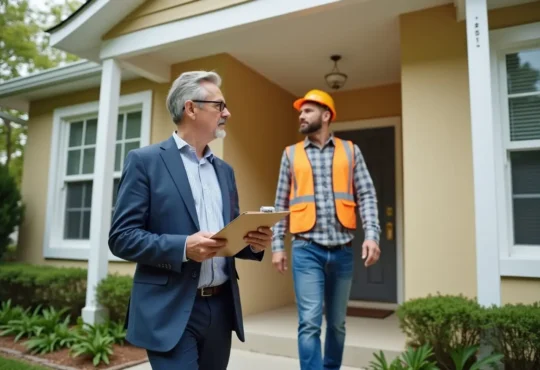
Maintaining Your Rental Property: The Path to Profitability and Peace of Mind
The ownership of a rental property represents a significant investment, one that offers the promise of steady passive income and long-term asset appreciation. However, realizing this potential requires diligent, proactive management, with maintenance as its cornerstone.
A well-maintained property not only preserves its inherent value but is also the most crucial factor in attracting and retaining high-quality tenants, minimizing vacancy periods, and, ultimately, maximizing your return on investment. The process of maintaining a rental property can be demanding, which is why many savvy investors turn to professional solutions, integrate critical system upgrades, and focus relentlessly on preventing common yet damaging issues.
Contents
The Strategic Advantage of Professional Property Management
For many landlords, especially those with multiple properties, those who live far from their investments, or those who simply value their time, the decision to hire a rental property management company like Rhino Property Management is a strategic move, not an expense. This decision effectively offloads the daily complexities of property operations, transforming the landlord’s role from a reactive troubleshooter to a passive investor.
The Entitled Benefits of Professional Management:
- 24/7/365 Maintenance Coordination: This is arguably the most valuable benefit. Property managers operate a continuous maintenance hotline, fielding emergency calls (like burst pipes or furnace failures) at any hour. This shield of availability protects the landlord from receiving midnight calls and ensures immediate action, which is vital for limiting damage and satisfying tenants.
- Access to Vetted Vendor Networks: A professional company has established relationships with licensed, insured, and reliable contractors (plumbers, electricians, HVAC technicians, etc.). This network often translates to volume discounts and prioritized service, meaning repairs are completed faster and more affordably than if a landlord were scrambling to find a new contractor during an emergency.
- Efficient Rent Collection and Financial Reporting: They handle the timely collection of rent, enforce lease terms, and manage the often-stressful process of eviction, should it be necessary. Furthermore, they provide detailed monthly and annual financial statements, simplifying tax preparation and offering clear visibility into the property’s performance.
- Legal Compliance and Risk Mitigation: Landlord-tenant laws are complex, constantly evolving, and vary significantly by state and municipality. Property managers are experts in fair housing laws, eviction procedures, security deposit rules, and inspection requirements. Their expertise mitigates the risk of costly lawsuits and ensures all operations are legally compliant.
- Superior Tenant Screening and Retention: By implementing a rigorous screening process, managers select reliable tenants who are more likely to pay rent on time and treat the property with respect. Furthermore, by ensuring prompt maintenance and clear communication, they foster a positive tenant relationship, leading to higher retention rates and reduced turnover costs.
By assuming responsibility for the day-to-day operations, professional property management allows the investor to focus on portfolio growth rather than fixing a leaky faucet.
Elevating Comfort: Strategic Heating and Cooling System Upgrades
Beyond basic repairs, strategic upgrades to the property’s core systems can dramatically increase tenant satisfaction, justify higher rent, and reduce operating costs. Few factors influence a tenant’s comfort and utility bill more than the heating, ventilation, and air conditioning (HVAC) system.
Investing in modern, energy-efficient HVAC units, such as high-SEER (Seasonal Energy Efficiency Ratio) central air conditioners or modern heat pumps, is a win-win scenario.
- Increased Tenant Comfort and Appeal: A property with reliable, zone-controlled heating and cooling is significantly more attractive in a competitive rental market. Tenants are willing to pay a premium for a consistent and comfortable living environment.
- Reduced Utility Costs: Newer units are significantly more energy-efficient than those even 10-15 years old. By lowering the tenant’s monthly utility burden, the landlord indirectly adds value to the tenancy, which serves as a powerful retention tool.
- Proactive Maintenance and Longevity: Regardless of the unit’s age, the key is regular, preventative AC maintenance. Scheduling biannual service (spring for AC, fall for heat) ensures the system is running optimally, prevents catastrophic breakdowns during peak season (when repair costs are highest), and extends the overall lifespan of the costly equipment. This preventative approach minimizes the emergency need, budget-busting replacements.
The Plumbing Priority: Preventing “Negative Energy” and Future Catastrophes
In the realm of rental property, neglected maintenance—especially in critical areas like plumbing—doesn’t just lead to tenant complaints; it creates a cascade of “negative energy” that translates into escalating damage, emergency crises, and the eventual erosion of your property’s value and profitability. A landlord who defers small repairs essentially invites bigger problems ahead.
Zero Tolerance for Plumbing Disruption:
- Curbing the “Silent Killer” (Water Damage): Slow leaks from a running toilet, a dripping faucet, or a loose pipe behind a wall are often missed by tenants but act as the most destructive force in a home. They silently promote mold growth, rot structural elements, and weaken finishes. Ignoring these minor signs transforms a $5 fix into a multi-thousand-dollar remediation project. Regular, annual inspections must check for telltale signs like water stains, loose caulk, or abnormally high water bills.
- Drain Maintenance Prevents Systemic Shock: Clogged drains are a frequent nuisance, but the real catastrophe lies in the main sewer line. In older properties, tree roots can invade pipes, leading to a complete system blockage. Failing to proactively inspect and jet main lines periodically is a gamble that culminates in a sewage backup—a complete, immediate environmental crisis that requires intensive, emergency labor and temporarily renders the unit uninhabitable. This kind of systemic shock is the ultimate expression of negative energy, causing intense stress and massive, unexpected capital expenditure.
- Water Heater Longevity is Security: The water heater is a pressure vessel that is prone to catastrophic failure. To avoid having the unit burst and flood the premises, it must be drained and flushed annually to remove corrosive sediment buildup. Replacing a simple heating element or an anode rod is a cheap, preventative action. Ignoring these services guarantees a premature failure, turning a manageable appliance replacement into a sudden flood event that demands immediate, costly mitigation.
The direct link between maintenance and peace of mind is undeniable. When a landlord or manager ensures issues are fixed quickly and professionally, they stabilize the property’s environment, minimize financial risk, and prevent minor nuisances from manifesting into major, soul-draining crises. This proactive approach transforms the rental property into a truly passive, profitable, and stress-free investment.





 Hi I'm Joe.
Hi I'm Joe. 